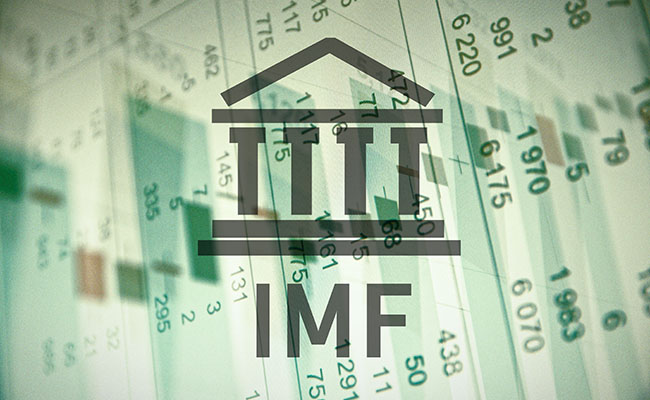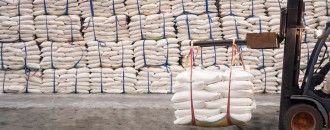
Current corporate, PSB scenario could hit India’s economic growth: IMF
India has clocked a 7.3% GDP growth rate so far during this financial year, and IMF has projected it to grow at 7.5% in the financial year 2016-17, making it the world’s fastest growing economy in 2016-17 The Dollar Business Bureau
 CRISIL revised outlook of five nationalised banks - Andhra Bank, BOB, Canara Bank, PNB and Punjab & Sind Bank - from ‘stable’ to ‘negative’
CRISIL revised outlook of five nationalised banks - Andhra Bank, BOB, Canara Bank, PNB and Punjab & Sind Bank - from ‘stable’ to ‘negative’International Monetary Fund (IMF) on Thursday cautioned India of its current corporate financial position and public bank asset quality and said it could pose risk to the country’s economic recovery, even though the country is well placed among the world’s leading emerging markets. “Vulnerabilities in corporate financial positions and in public bank asset quality could pose risks to economic recovery and weigh on financial stability if left unaddressed,” said Jose Viñals, Financial Counselor and Director, IMF. “Policy commitment to address long-standing supply bottlenecks, especially in the mining and power sectors, as well as further land, labor, and product market reforms, would also help strengthen India’s economy and support stronger, sustained economic growth,” Viñals said. In order to sustain the country’s robust economic growth in the coming years, as the IMF counselor had opined, the government needs to keep inflation under control and continue to deliver on fiscal consolidation. It should increase its efforts to tackle the corporate debt as well as clean up the public sector banks’ balance sheets. However, Viñals betted big on India and said despite all the challenges in the domestic market, India is better placed compared to many other emerging economies in the world. The country’s economy has been recovering well, and there is an upsurge in sentiments. India has clocked a 7.3% GDP growth rate so far during this financial year, and IMF has projected it to grow at 7.5% in the financial year 2016-17, making it the world’s fastest growing large economy in 2016-17. The global financial body attributed the country’s projected growth rate to lower global commodity prices, reduced external vulnerabilities, accelerated policy actions and improved confidence among the domestic as well as international investors. Dramatic fall in global oil prices has propelled fiscal revenues and has had a positive impact on inflation. But some of the challenges including banks’ stressed loans, which are as high as 14.1% and deteriorating corporate and banking sector, could pose a major threat to the economy. Meanwhile, the credit rating agency CRISIL has downgraded debt instruments of India’s eight public sector banks – Indian Overseas Bank, Corporation Bank, Bank of India, Dena Bank, Central Bank of India, IDBI Bank, UCO Bank and Syndicate Bank citing asset quality problems as reasons experienced by these PSB's to remain acute during the next financial year. The global rating agency also revised the outlook of five others banks - Punjab National Bank, Andhra Bank, Canara Bank, Bank of Baroda and Punjab & Sind Bank - from their earlier ‘stable’ to ‘negative’ status.
March 11, 2016 | 04:30pm IST






 to success.
to success.